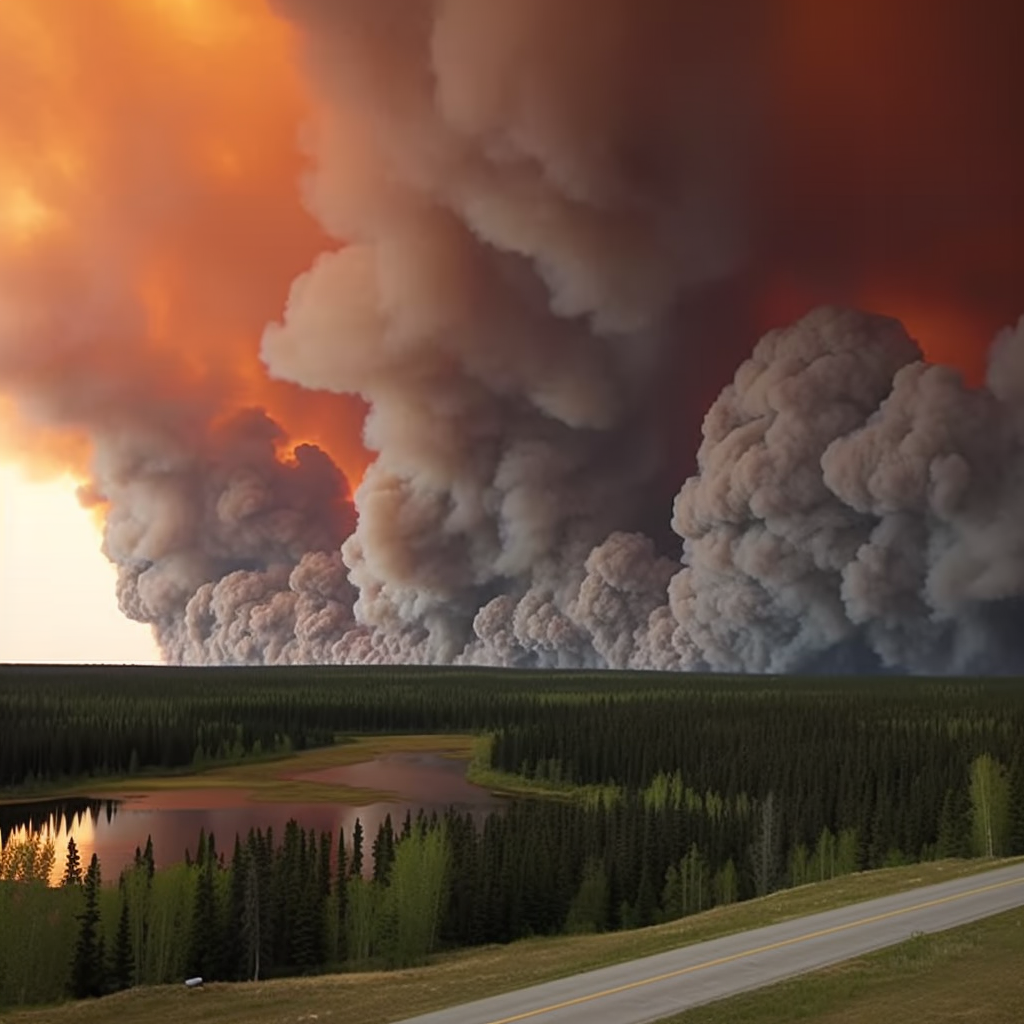July 6, 2023
Unleashing Destruction, Canada’s Wildfires Threaten Economy and Environment
Book a Demo
Canada’s wildfires have become a growing concern, with their destructive force impacting not only the environment but also the country’s economy. The scale of these wildfires is staggering, having burned an astonishing 20 million acres of land. This has resulted in a thick blanket of smoke that has enveloped cities in both Canada and the United States, raising health concerns for residents on both sides of the border.
The economic consequences of these wildfires have been far-reaching. Oil and gas operations have been severely disrupted, leading to a reduction in production and impacting the country’s energy sector. Timber harvests have also been affected, with the destruction of vast forest areas hindering the forestry industry. This has not only resulted in economic losses but has also put pressure on the supply of timber for construction and other industries.
Another sector significantly impacted by the wildfires is the tourism industry. The thick smoke and hazardous air quality have discouraged tourists from visiting affected areas, leading to a decline in tourist activity. This has further compounded the economic losses suffered by local businesses and communities that heavily rely on tourism for their livelihoods.
Furthermore, the Canadian healthcare system has been burdened by the health consequences of the wildfires. The smoke and pollution caused by the fires have resulted in respiratory issues and other health complications for residents in affected areas. This has imposed significant costs on the national health system, diverting resources that could have been used for other pressing healthcare needs.
The impact of these wildfires goes beyond immediate economic losses. Increasing volatility in extreme weather events, including wildfires, effectively cancels out any potential gains from warming temperatures. As a result, Canada is facing escalating damages and economic losses due to climate change. Projections indicate that climate-related costs could reach a staggering 25 billion Canadian dollars by 2025. This would cut economic growth in half and result in the loss of 500,000 jobs by midcentury if urgent action is not taken.
The ripple effects of the wildfires have also been felt in other industries. Lumber mills, for example, have suffered from the destruction of vast forest areas, exacerbating Canada’s housing shortage. The decline in business activity caused by the wildfires has further deepened the impact on the economy, creating a challenging environment for businesses across various sectors.
The financial burden of climate change is becoming increasingly apparent. Extreme weather events alone cost Canada an estimated 1.6 billion Canadian dollars in economic losses each year. This highlights the urgent need for comprehensive climate policies and investments to mitigate the impacts of climate change and protect the economy.
Moreover, Canada’s infrastructure has not been spared from the ravages of climate change. The wildfires have caused extensive damage to roads, bridges, and buildings, necessitating costly maintenance and upgrades. These additional expenses further strain the already burdened economy.
The forestry industry, a significant contributor to Canada’s economy, is particularly vulnerable to the increased risks of wildfires and pests brought on by climate change. The destruction of forests has resulted in substantial economic losses and job cuts within this industry, further amplifying the economic impact of the wildfires.
Canada’s wildfires have had a devastating impact on both the economy and the environment. The extent of the damage, from disrupted oil and gas operations to reduced timber harvests, has had far-reaching consequences across multiple sectors. The economic losses, projected to reach 25 billion Canadian dollars by 2025, coupled with the loss of jobs and damages to infrastructure, underscore the urgent need for effective climate policies and investments. The wildfires serve as a stark reminder of the pressing need to address climate change and its consequences before the situation worsens.



